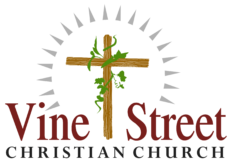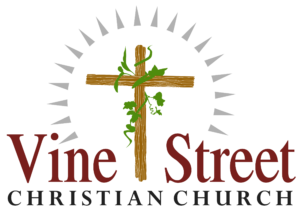Recent Posts
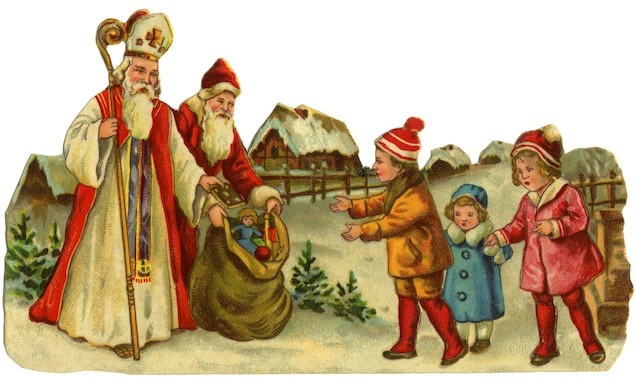
THE LEGEND OF SAINT NICHOLAS

Way back in the 3rd century, a boy named Nicholas was born in the village of Patara, on the southern coast of what is today Turkey. He had wealthy Christian parents who died in an epidemic while Nicholas was still young. His parent taught Nicholas to always obey Jesus’ words to “sell what you own and give the money to the poor.” Nicholas received a large inheritance when his parents died, and he used all of it to assist the needy, the sick, and the suffering.
Nicholas dedicated his life to serving God and was made Bishop of Myra while still a young man. Bishop Nicholas soon became known throughout the land for his generosity to those in need, his love for children, and his concern for sailors and ships.
Under Roman rule, Bishop Nicholas suffered for his faith, was exiled and imprisoned. The prisons were so full of bishops, priests, and deacons, there was no room for the real criminals—murderers, thieves and robbers.
After his release, Nicholas attended the Council of Nicaea in AD 325. He died December 6, AD 343 in Myra and was buried in his church, where a unique relic, called manna, formed in his grave. This substance was known to have healing powers, and so the people’s devotion to Bishop Nicholas grew even more after his death. The anniversary of his death became a day of celebration, St. Nicholas Day, December 6th.
Through the centuries many stories and legends have been told of St. Nicholas’ life and deeds. These accounts help us understand his extraordinary character and why he is so beloved and revered as protector and helper of those in need.
One story tells of a poor man with three daughters. In those days a young woman’s father had to offer prospective husbands a dowry. The larger the dowry, the better the chance that a young woman would find a good husband. Without a dowry, a woman was unlikely to marry. This poor man’s daughters had no dowries, and were therefore destined to be sold into slavery. But mysteriously, on three different occasions, a bag of gold appeared in their home-providing the needed dowries.
The first 2 bags were tossed through an open window and landed on stockings left before the fire to dry. When Nicholas was ready to throw the third bag of gold through the window, he found it closed and locked. And so, Nicholas did what we all would do … he climbed up to the roof and dropped the third bag of gold down the chimney, where it promptly landed on the shoes lying beside the fire below.
This legend led to the custom of children hanging stockings or putting out shoes, eagerly awaiting gifts from Saint Nicholas.
One of the oldest stories about St. Nicholas as a protector of children takes place long after his death. The town of Myra was celebrating the good saint on the eve of his feast day when a band of Arab pirates from Crete entered the town. They stole many treasures from the Church of Saint Nicholas. And, as they were leaving town, they snatched a young boy named Basilios, to make him into a slave. The pirate’s ruler selected Basilios to be his personal cupbearer, since he didn’t know the language and would not understand what the king said to those around him.
So, for the next year Basilios served the ruler. But Basilios’ parents were devastated at the loss of their only child. The year passed very slowly for them, filled with grief. A year later, when the next St. Nicholas’ feast day approached, Basilios’ mother would not join in the festivity, for it had become a day of tragedy for her. But she was persuaded to have a simple observance at home—with quiet prayers for Basilios’ safekeeping. Meanwhile, Basilios was fulfilling his tasks serving the ruler as his mother prayed, when suddenly he was whisked up and away. Then St. Nicholas appeared to the terrified boy. He blessed him, and then took Basilios back to his Myra home.
Imagine the joy when Basilios amazingly appeared before his parents, still holding the king’s golden cup!
Another story tells of three religious students, traveling on their way to study in Athens. A wicked innkeeper robbed and murdered them, hiding their remains in a large pickling tub. It so happened that Bishop Nicholas, traveling along the same route, stopped at this very inn. In the night he dreamed of the crime, got up, and summoned the innkeeper. As Nicholas prayed earnestly to God, the three boys were restored to life and wholeness.
In France the story is told of three small children, wandering while playing until lost, lured, and captured by an evil butcher. St. Nicholas appeals to God to return them to life and to their families.
Several stories tell of Nicholas and the sea. When he was young, Nicholas sought more of God by making a pilgrimage to the Holy Land. There as he walked where Jesus walked, he sought to experience more deeply Jesus’ life, passion, and resurrection. Returning by sea, a mighty storm threatened to wreck the ship. Nicholas calmly prayed. The terrified sailors were amazed when the wind and waves suddenly calmed, sparing them all. Thus, St. Nicholas also became the patron saint of sailors and voyagers.
Other stories tell of Nicholas saving his people from famine, sparing the lives of those innocently accused, and much more. He did many kind and generous deeds in secret, expecting nothing in return. Within a century of his death, he was celebrated as a saint.
Through the centuries, St. Nicholas has continued to be venerated by Christians worldwide. His example of generosity to those in need, especially children, continues to be the model for a compassionate life dedicated to God. And somewhere along the way, the Spirit of Saint Nicholas became known as Santa Claus.
Channeling my own inner-Saint Nick!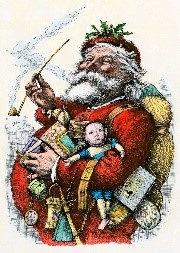
Pastor Bob <><
Read more
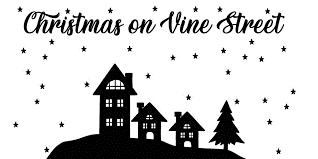
2 THINGS: CHRISTMAS AT VSCC & AN ADVENT POEM

Christmas Plans at VSCC:
Sunday, December 18: 10:00am Worship Service – The Last Sunday of Advent (LOVE)
Saturday, December 24: 6:30pm Christmas Eve Service – Music & Lessons for the Family
Sunday, December 25: 10:00am Worship Service – Christmas Fun & Communion (wear your favorite pajamas, team jersey or ugly Christmas sweater).
Sunday, January 1: NO Worship Service – “Acts of Kindness” Sunday (Reach out to neighbors & strangers with your heart, hands and feet today).
A Perfect Advent Poem
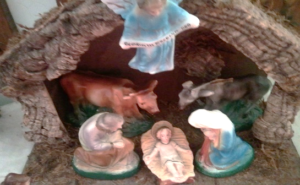
Mary Oliver has long been the favorite poet for my mom and I. This particular poem, “An Advent Poem” from her book, “Thirst,” speaks to the preparation and anticipation of the whole world as we all await the next coming of Jesus.
An Advent Poem by Mary Oliver
Dear Lord, I have swept and I have washed but
still nothing is as shining as it should be
for you. Under the sink, for example, is an
uproar of mice – it is the season of their
many children. What shall I do? And under the eaves
and through the walls the squirrels
have gnawed their ragged entrances – but it the season
when they need shelter, so what shall I do? And
the raccoon limps into the kitchen and opens the cupboard
while the dog snores, the cat holds the pillow;
what shall I do? Beautiful is the new snow falling
in the yard and the fox who is staring boldly
up the path, to the door. And I still believe you will
come, Lord; you will, when I speak to the fox,
the sparrow, the lost dog, the shivering sea-goose, know
that I am really speaking to you whenever I say,
as I do all morning and afternoon: Come in, Come in.
Advent glory to us all!
Pastor Bob <><
Read more
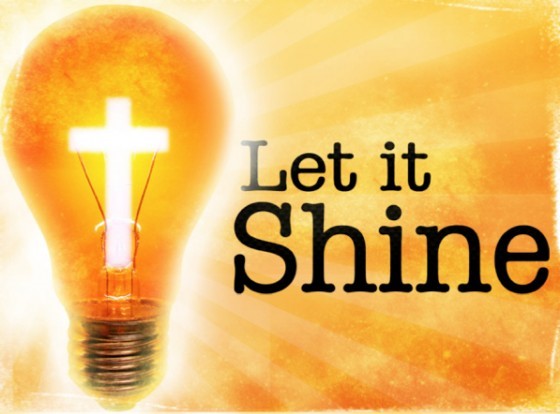
IT’S TIME TO SHINE YOUR LIGHT!

We all have books that pop up in our lives that in one way or another change us irreversibly. One of the first books I read that had that effect on me, and changed the way I see things forever, was a little semi-autobiography called “Let Your Life Speak,” by Parker Palmer.
Over the years, Parker Palmer has remained an influential voice of wisdom for me, having read many of his books and attended some retreats he has led. But this first little book was the one that turned my view of myself inside-out, and taught me that if I just happened to be looking for the light of God, I might want to look inside myself, rather than all around myself.
I have used “Let Your Life Speak” as a guide for many different small groups and retreats, and there is one part of the book that continuously makes a deep impression on its readers. The section of the book Palmer subtitles “Shadows and Spirituality” begins with a definition of leadership.
We are all called to play “leadership roles” in our lives. Almost always they come with some kind of title that we consider routine, boring, or even blasé. And yet, these are the very roles that God has called us to in this world. Roles like parent, grandparent, teacher, sibling, best friend, coach, and many others. These are some of the most important roles that one can play in the life of another. Here is how Palmer defines “leadership” for all of us who understand that the truth of who we are makes leaders of us all.
Palmer says, “A leader is someone with the power to project either shadow or light onto some part of the world and onto the lives of the people who dwell there. A leader shapes the ethos in which others must live, an ethos as light-filled as heaven or as shadowy as hell. A good leader is intensely aware of the interplay of inner shadow and light, lest the act of leadership do more harm than good.”
Take a role that many in our church play every day: parent, teacher, coach, grandparent, etc. Think of all the “training” hours that went in to being a “leader” in that role. Think of a teacher or coach who spends so many hours each week with our most precious young people. Simply put, any leader can have a huge positive or negative impact on any one child or person by either being a leader who shines light on others, that “allows new growth to flourish,” or being a leader that employs the tactics of darkness, “casting a shadow under which seedlings die.”
Whether we know it or not, we all play leadership roles in our daily lives that either cast light on others, or brings shadows and darkness to them. Think about it. Can you think of a teacher, coach, or other adult in your early life that impacted you because of their light or their darkness. Leadership styles become pretty clear when you think of them simply as providing light or bringing shadows to your life. Interestingly for me, some of my toughest and gruffest coaches and teachers have been ones that shined a great light of my life, and helped me see myself in new ways.
When we as “leaders” ignore what’s going on inside ourselves because our whole leadership focus is external, then the dark shadows we carry within tend to grow unchecked and we become leaders into darkness, not into light. The point is, that good leaders – and we’re all leaders – need the spiritual skills to look inward and journey to the source that is both shadow and light.
Palmer says that if we do not understand that the “enemy” is within us, we will find countless ways of making someone or something “out there” our enemy, thus becoming leaders who miss the truth about ourselves because we’re always looking to throw darkness on someone else. Good leadership, Annie Dillard says, “comes from people who have penetrated their own inner darkness and arrived at a place where we are all one with each other.”
And once we realize that we are all one with one another, then we begin to see how impactful our “leadership style” can be on all those around us … and the world for that matter. Leaders who know of this oneness, always find ways to bring light to situations with others … always finding a way to “yes” even when yes seems out of reach.
As we journey through this Advent season together, let us be mindful of what kind of leadership style we are bringing to those around us — are we leaders who always bring light to a dark world, or are we only adding to the darkness that already exists. The leaders who changed my life for the good, were all carriers and deliverers of the light. And that’s the kind of leader I always try to be.
Pointing to the light, I am… Pastor Bob <><
Read more
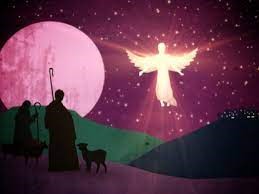
A Deal Too Good to be True?

But the angel said to them, “Do not be afraid. I bring you good news that will cause great joy for all the people. (Luke 2:10)
Today’s “Low” Advent Devotion from John Pavlovitz makes us wonder … is everything that was promised to the shepherds by the angels, “too good to be true?”
Good News? Great Joy? All People? Really?
Have you ever woken up in the middle of the night and found yourself watching some hyper-aggressive sales pitch on an infomercial that has caught your attention and will not let go? Usually, it’s too good to be true.
Then, a few weeks later, the product that you couldn’t resist buying in the middle of the night turns out to be completely underwhelming. And, once again, you tell yourself, these infomercials are not to be trusted. Like everything else, they’re just too good to be true.
That was the same dilemma that the shepherds faced that fateful night out in the fields watching their sheep. First, the messengers for this infomercial were angels. So, immediately, you ask, “Is this too good to be true?” Second, the angels tell you not be afraid. Think about it. Whenever anyone says to you, “don’t be afraid,” you know you should be afraid! And then the real pitch. The angels are delivering a) Good News; b) of Great Joy; c) for All People.
Is that something you’re “buying” this year for Christmas? Have you ever thought that those angels in the fields watching their sheep by night are really just metaphors for our own lives? Aren’t we all, in a way, living and sleeping with all our responsibilities in life (just like shepherds watching their sheep)? Can you even imagine that things could be different … that this “too good to be true” is really true?
Are you curious enough to find out this Advent & Christmas season?
Are you willing to seek out the angels, to not be afraid to believe in something that has always sounded like a pipe dream … something too good to be true?
Are you ready to “come out” as a Jesus follower this year? If not, what is it that you’re waiting for? Isn’t this the year you have been waiting for. Isn’t it just the right time in your life to come out and reveal your faith in God, and in God’s plan for you? Isn’t NOW the time to follow Jesus?
Good News. Great Joy. All People.
Believe.
This week, look for direct, tangible, and close ways to bring news that is good, and joy that is great, to all people in your path.
And in that way, all God’s promises can come true.
It’s really up to you. Not anybody else.
Is this the season you channel your best inner shepherd, and really believe that “too good to be true” doesn’t apply when it comes to God. With God, it’s all true. Believe.
Good News. Great Joy. All People.
Do not be afraid.
Read more
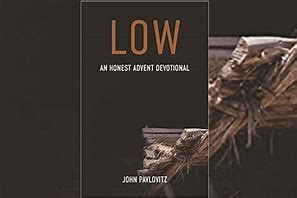
VINE STREET GOING “LOW” FOR ADVENT SEASON START YOUR JOURNEY HERE!

Beginning Sunday, November 27th, we will embark on a journey through Advent together. The centerpiece of our journey will be the wonderful Advent devotional written by John Pavlovitz called “Low.”
Using “Low” as our guide, we will be offering you opportunities to deepen your Advent journey through daily devotionals, weekly zoom call, weekly discussion group, and more. Plus, each Sunday message and the weekly Vision article will also be following the “Low” devotional.
I wonder what kind of Christmas we could create together if we all journeyed together. I hope each of you can make a way to join in.
Copies of “Low” will be available at church starting this Sunday. Or, you can order your own copy. Here is the link to buy “Low” through Amazon:
Low: An Honest Advent Devotional: Pavlovitz, John (amazon.com)
More specifics about the Advent journey offerings will be announced soon. But for now, you can get a head start by reading the Introduction of “Low,” which is reprinted below.
Along for the ride, Pastor Bob
INTRODUCTION to “Low” by John Pavlovitz
It’s often said that we see our lives with perfect clarity as we look back at them: hindsight improves our vision and clarifies all that once was cloudy. This isn’t always as true of our spiritual journeys. Sometimes our place in time is actually a barrier to really getting close enough to truly feel it all. We naturally read the Bible retrospectively. We encounter our faith tradition in the rearview mirror of history, and as a result we approach it knowing how the story ends.
This often leads us to sanitize the Gospels—to obscure the gritty, messy reality of those moments as they were experienced in real time. It actually squeezes out the surprise and the wonder and the unbelievable-ness of it all. We tend to over spiritualize the events being described, and this places a distance between them and us. We view the God-narrative as if from thirty thousand feet, safe in the abstract places of detached theology.
There, Scripture is a movie we are passively watching rather than a true story we are participating in, and so we often miss the gravity of these moments and fail to experience them on visceral level, which is a shame. The greater time and emotional distance we get from the stories of Jesus, the smaller he actually becomes and the less wild and dangerous these stories feel.
But there is a beauty in trying to see these accounts from the ground level, to imagine how they looked and felt from the low places of people’s ordinary lives—people who didn’t know what we think we know from where we’re standing. When we do, we remember what is really going on here. We remember that this is the story of an olive-skinned baby, born amid the smell of damp straw and animal dung because no human-worthy welcome could be found; of a child of young Palestinian Jewish parents, desperately fleeing politically ordered genocide. It is the story of a poor, itinerant, street preaching rabbi; spending his days dining with the lepers and prostitutes, enlisting the doubters and the backsliders, and comforting the bleeding and the grieving. It is divinity coming low to inhabit humanity. It is God’s massive scale delivered in counterintuitive smallness. It is beautifully strange.
When we place our feet firmly in the dirt and dust of the everyday within the Gospel stories, we see Jesus getting low to meet us there. It reminds us that more often than upon the jubilant summit of the radiant mountaintop, the spiritual journey is spent in the low and shadow places. We are there in that beautiful lowness when we live humbly. We are there when we seek forgiveness. We are there in our grief and suffering. We are there when we kneel in reverent awe. We are there when we spend ourselves on behalf of someone else. When we place ourselves in these postures, our perspective changes, our attitude towards people shifts, and we become agents of love in a way that actually resembles Jesus. We perpetuate his character through our very lives. The season of Advent allows us to notice the posture we are living in; and invites us to step into the story again and to get our hands dirty. It is a space where we can walk together and get proximity to these stories again—to a place closer than religion can go. When Jesus offers the prayer, “Thy kingdom come, thy will be done, on earth as it is in Heaven,” he reminds us that the invitation as we walk the road of Advent, is not to escape this place to an elevated Heavenly sanctuary somewhere, it is to bring Heaven down. Immanuel means “God with us.” In other words, it is Jesus, getting low. This is really good news for us here on the ground.
Let’s head to the low places together.
Read more
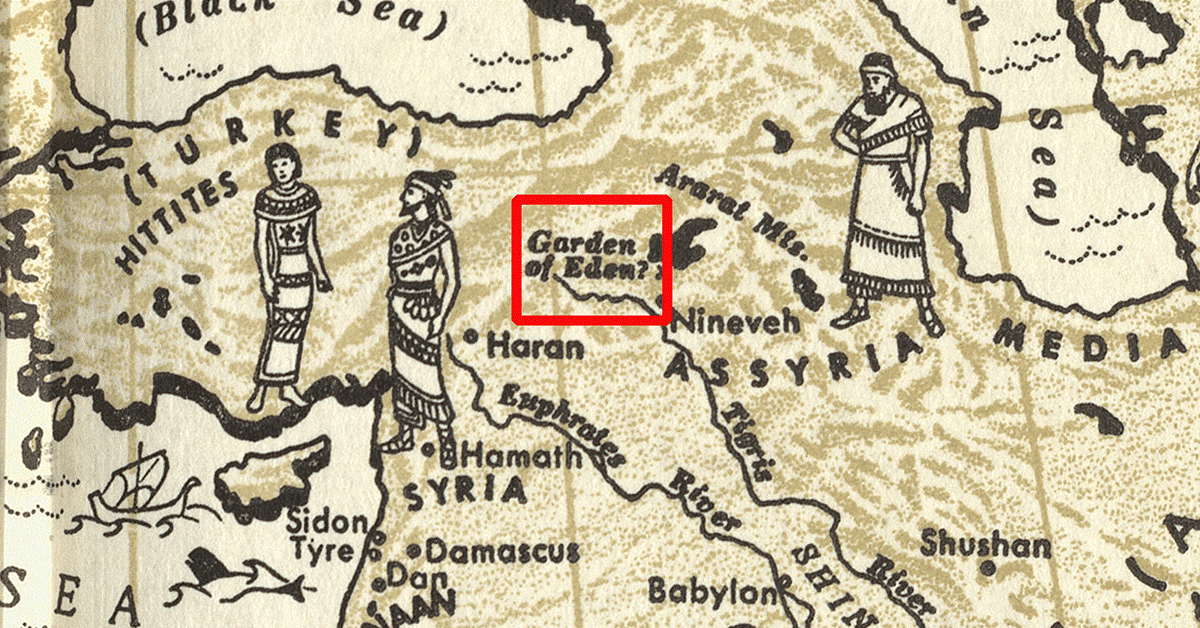
LIFE IS A HOMEGOING

Here’s how it works.
God created.
Once, and only once …. as far as we know.
This act of creation is depicted in the Book of Genesis as the 6 days of creation.
Because God is good only, creation was good only.
This is depicted in the Book of Genesis as the Garden of Eden.
At the very end of God’s act of creation, God creates humans. Us.
And God proclaimed us to be very good.
The Book of Genesis named these humans Adam and Eve.
The Garden was God’s complete Goodness. Harmony. Everything, all one. Us. Creation. God.
For perhaps a blink of an eye. Probably much shorter.
However long it took for the Adams and Eves to exert free will.
That moment is depicted in the Book of Genesis by the serpent and the forbidden fruit.
Humans bite. Then self is might. God becomes a back-up plan.
Scratch the needle across the record! Disharmony. Sin. Separation, from God and each other.
Undoable. But … redeemable.
Paradise gone. Humans go East.
Their new world is depicted in the Book of Genesis as Cain & Abel.
Sin. Separation, from God and each other. And death.
Self-might is never right. Over and over and over and … insanity rules.
Only God is good. We’re only redeemable. God is the good redeemer.
Somebody say, Amen!
God’s love for humans is infinite. Beyond words. Really.
God becomes One with us, as one of us. Christmas.
This is depicted in the Gospel of Luke as a babe born in the manger.
God divine becomes God human. Both. Jesus of Nazareth. Christ the Lord.
Jesus is the sacrifice for our redemption. Remember … God is the good redeemer.
This sacrifice is depicted in the Gospel of Luke as the crucifixion of Jesus.
God divine defeats death. God human takes all the world’s sin away with Him.
What wondrous love is this? You know it in your soul.
This is God’s love offering … for you. Do you have one for God?
God human ascends. God spirit remains. Jesus lives. Death is defeated.
And … We Are Redeemed! God spirit lives in us. Kingdom Builders.
This is depicted to us in the Book of Genesis as the Garden of Eden.
Remember? That’s our home. The original. At the creation.
They say, all life is about going home. It’s true.
We’re all going home. Going every minute of every day.
Redeemed. Homegoing. Very Good!
God is good. All the time.
… and then God created again!
Huh?
Have a peaceful and harmonious week!
Pastor Bob <><
Read more
